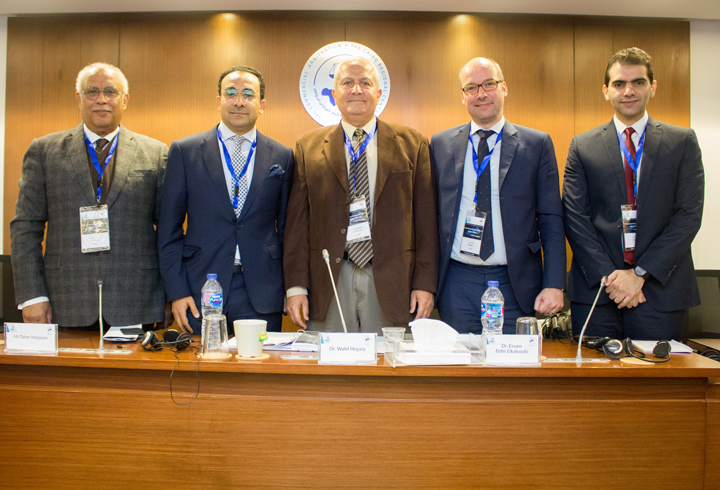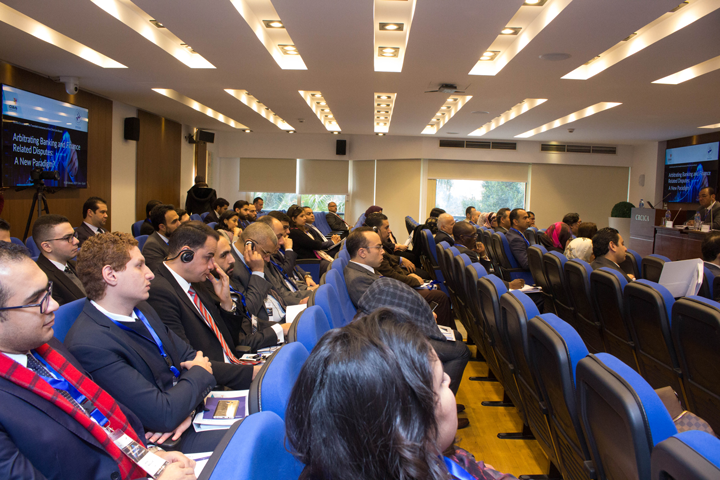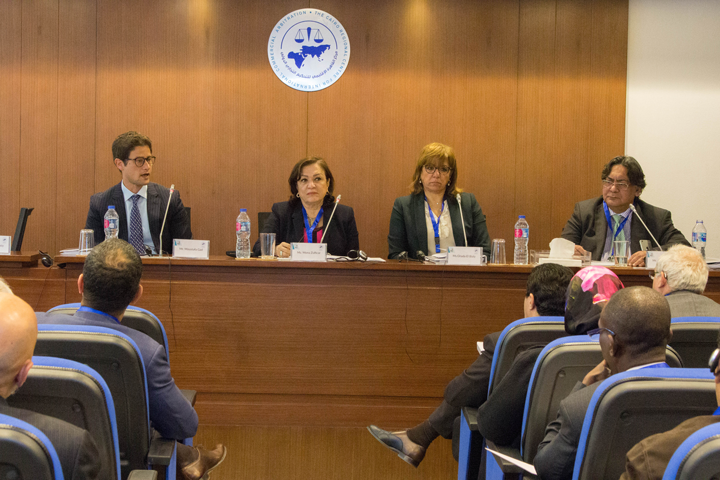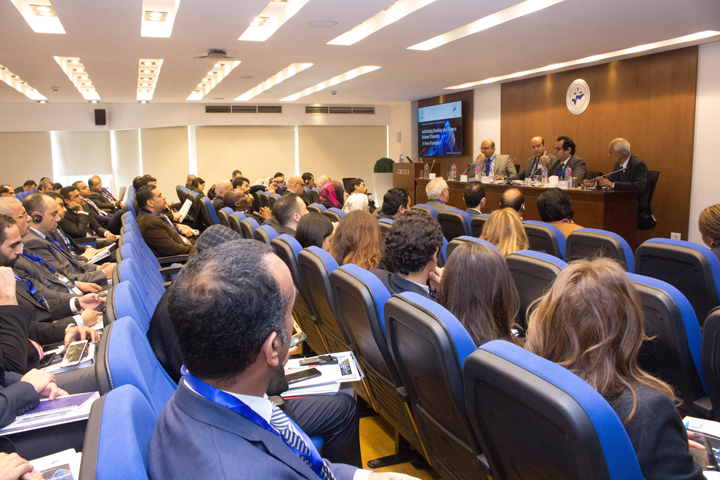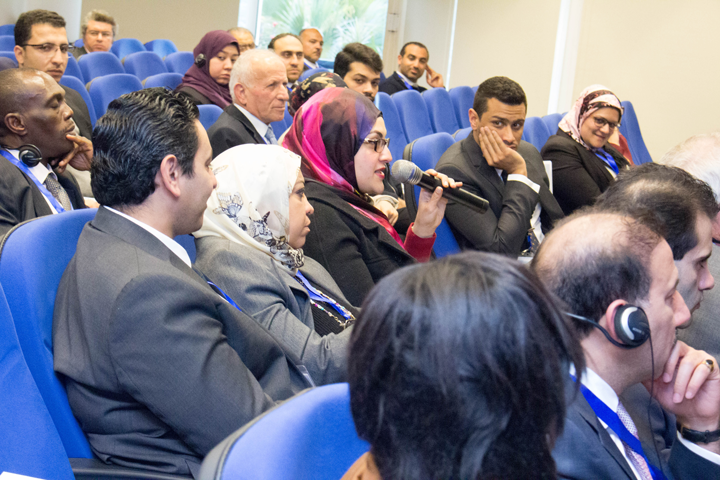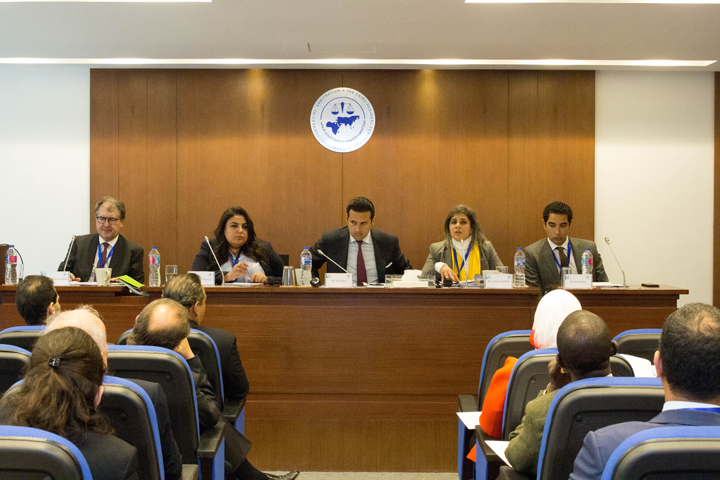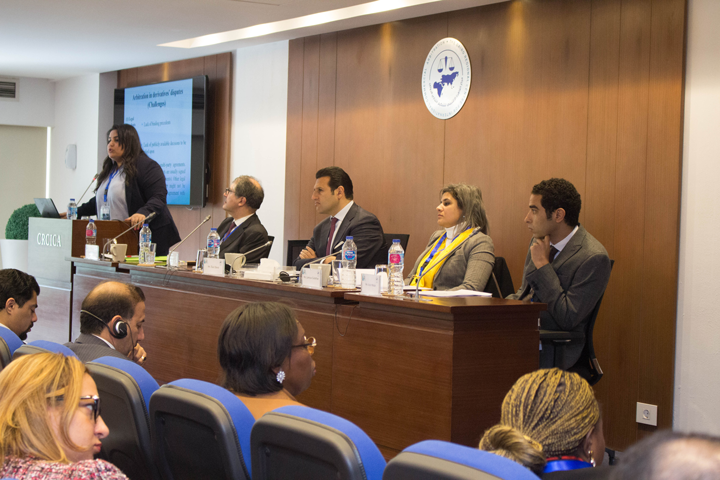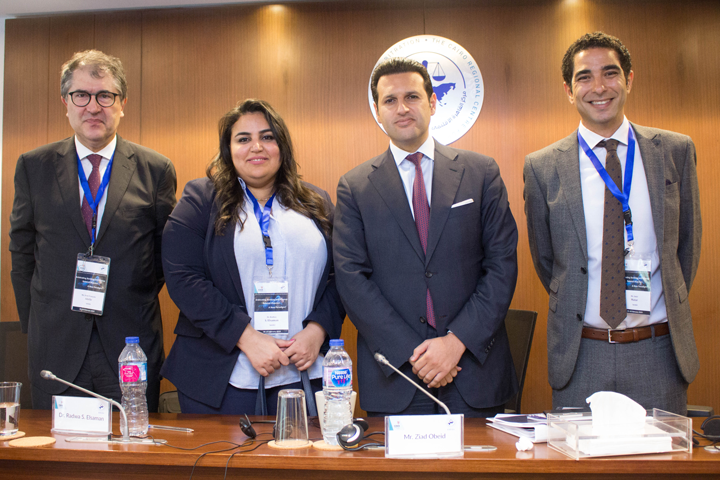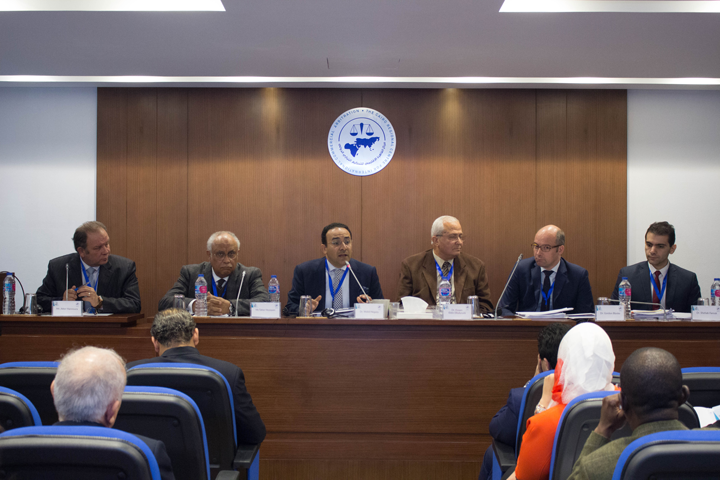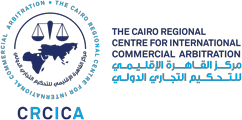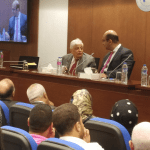
CRCICA hosts Professor Georges Abi Saab in a Seminar on: “Some ethical problems faced by a party appointed arbitrator in investment arbitrations” on 10 April 2019
On 10 April 2019, CRCICA organized a seminar on “Some ethical problems faced by a party appointed arbitrator in investment arbitrations”. The speaker was Prof. Dr. Georges Abi Saab, Honorary Professor of International Law at the Graduate Institute of International Studies (Geneva), Former Member and President of the Appellate Body, World Trade Organization (WTO), and Member of CRCICA’s Board of Trustees. The seminar was moderated by CRCICA’s Director Dr. Ismail Selim.
Professor Abi Saab addressed controversial issues related to the independence and impartiality of arbitrators in investment arbitrations, including issue conflict, repeat appointments, and proposals to abolish the appointments of arbitrators by the parties. He highlighted the fundamental importance of impartiality in investor-state arbitrations because the state, party to these cases, represents the public interest.
The event was attended by 131 participants from Egypt, Guinea, and Sudan. Participants were members of law firms, the Egyptian Lawsuit Authority, Egyptian State Council and professors at Cairo University, Helwan University, Beni-Sweif University, Assiut University and the American University in Cairo. Other participants were from of the Ministry of Culture, GAFI, and the banking and gas sectors.
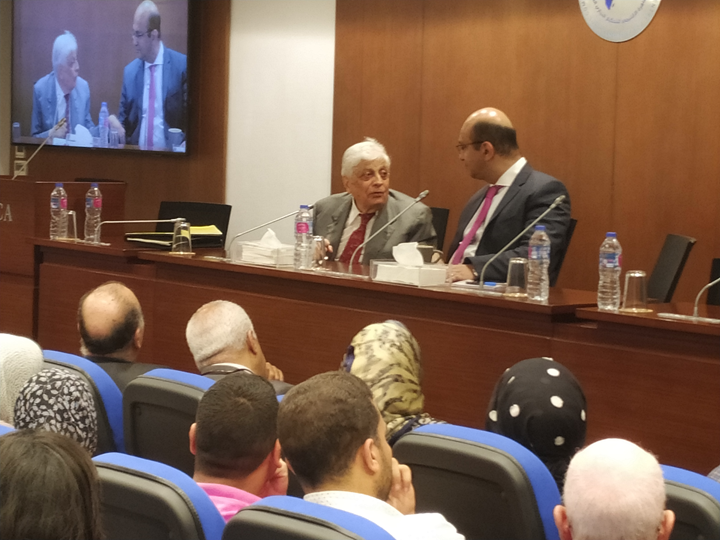
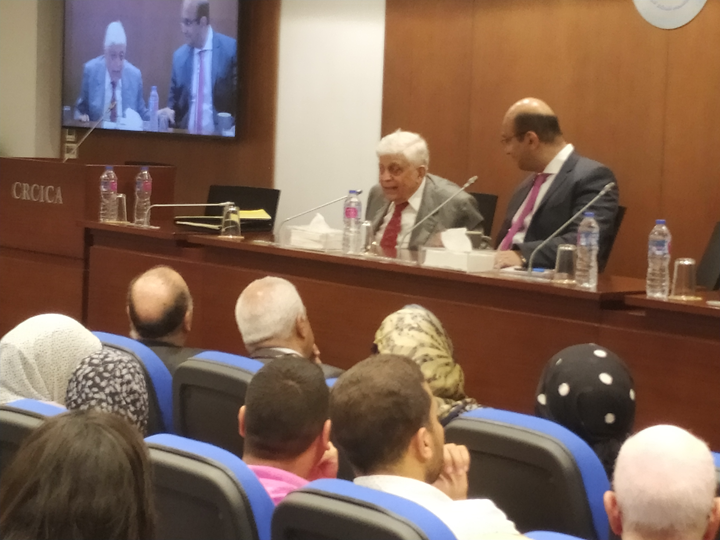
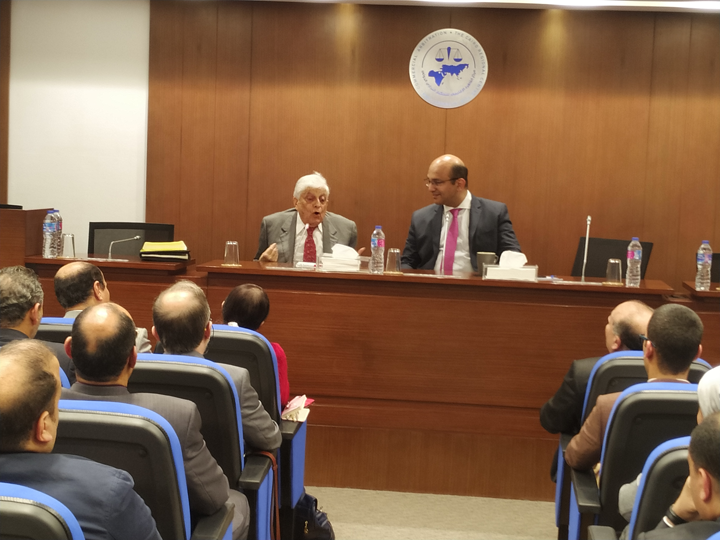
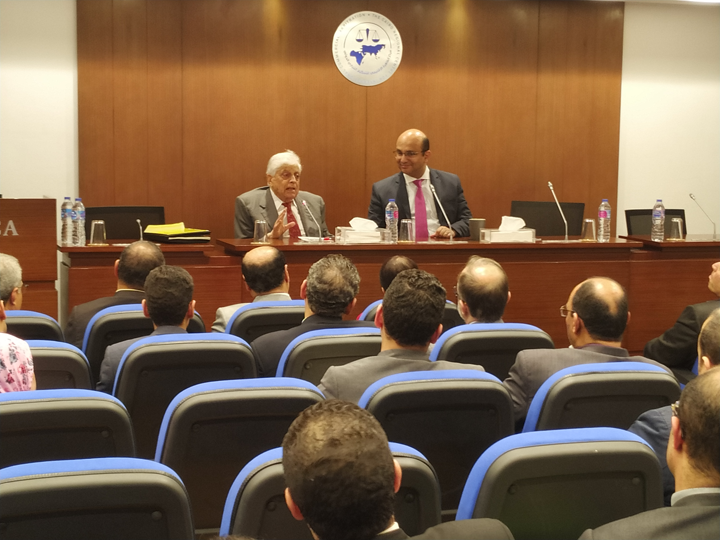
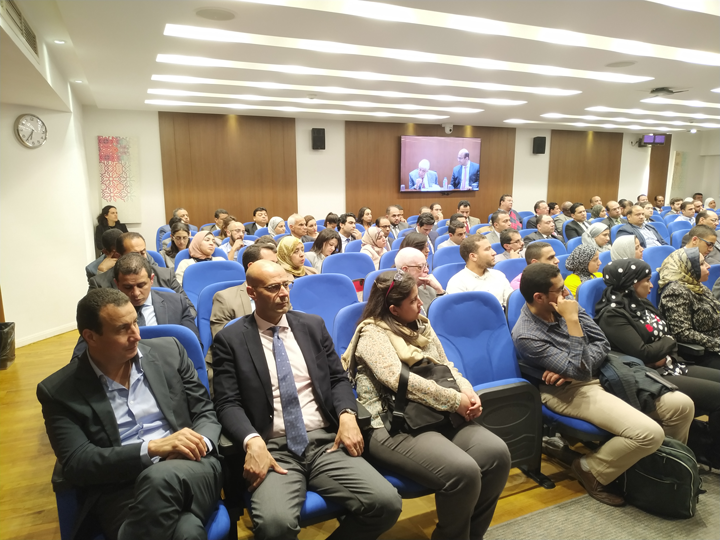
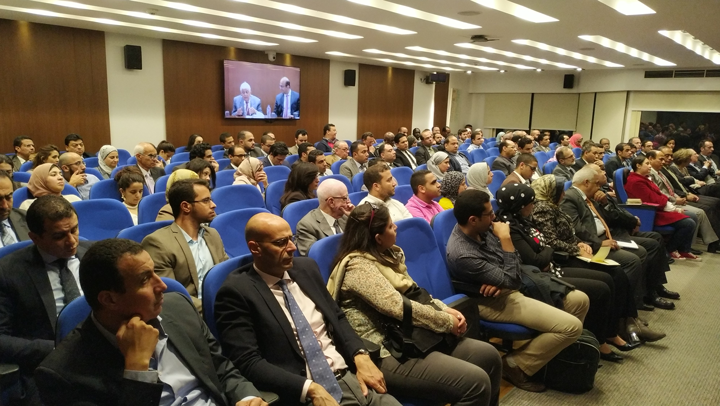
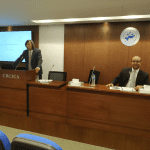
Seminar on: Contract Interpretation in International Arbitration – Is There A Common Law/Civil Law Divide of Real Significance?
On 1 April 2019, the CIArb Egypt Branch organized jointly with CRCICA a seminar titled “Contract Interpretation in International Arbitration - Is There A Common Law/Civil Law Divide of Real Significance?” The speaker was Dr. Lawrence Shore, Partner and Team Leader of the International Arbitration Focus Team, BonelliErede, Italy, and Former Vice Chair of the Executive Committee of the Institute for Transnational Arbitration. The seminar was moderated by the Branch Vice-Chairman Dr. Ismail Selim. Dr. Shore focused on four main points: text v. context in contract interpretation, English and US contract law compared, English/American compared to French contract law and why the applicable law does matter in arbitration. More than 110 professionals attended the Seminar from Egypt and Switzerland representing the following business sectors: engineering, contract engineering, construction, as well as members of law firms, State Council, Administrative Prosecution Authority, and universities (Cairo University, Beni Suef University, Helwan University, German University in Cairo, and Azhar University). Interactive discussions followed the presentation.
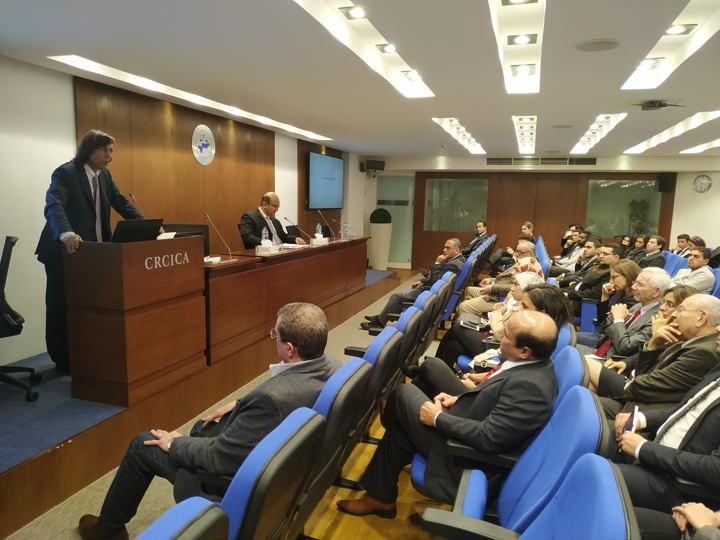
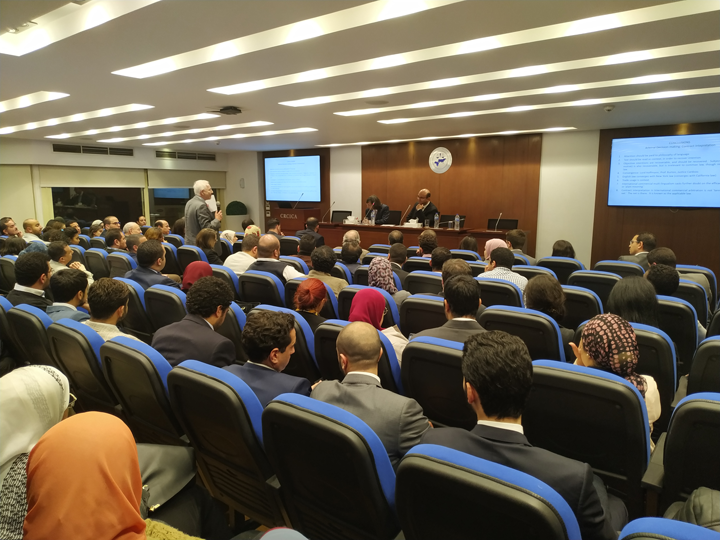
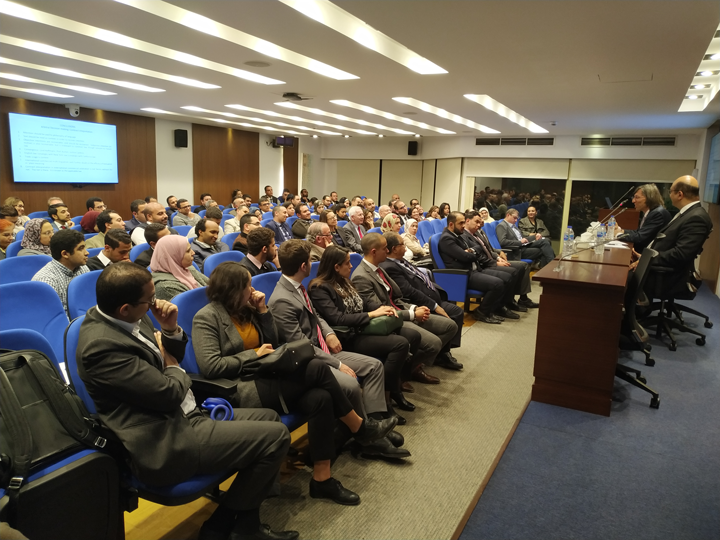
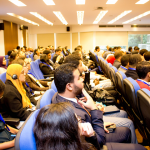
Young CRCICA Forum Launch Event: The New Frontiers of Arbitrability: Expansion and Diversity
On 27 March 2019, CRCICA organized the Young CRCICA Forum Launch Event: “The New frontiers of Arbitrability: Expansion and Diversity”. The event was sponsored exclusively by Shahid Law Firm. The Young CRCICA Forum’s Chairperson is Ms. Amani Khalifa, Principal, Khalifa Associates Law Firm, its Vice Chairperson is Dr. Mohamed Hafez, Counsel and Legal Advisor to the Director, CRCICA, and Vice Chairperson Mr. Abdallah El Shehaby, Partner, Rizkana & Partners (Egypt), and Vice-Chairman, Young CRCICA. Similar to youth forums of other international arbitral institutions, Young CRCICA aims to aid the younger generations the chance to develop their skills, gain knowledge, network with experienced practitioners, and understand arbitral procedure and other dispute resolution services.

The Forum witnessed CRCICA’s singing of two cooperation agreements with the Faculty of Law, British University in Egypt (“BUE”) and the Faculty of Law, Cairo University. Dr. Ismail Selim signed the agreements on behalf of CRCICA, Prof. Hassan Abdel Hamid, Dean of BUE, and Prof. Sabry El Senousy, Dean of the Faculty of Law, Cairo University signed it on behalf of their respective faculties. The agreements provide for cooperation in the field of arbitration, holding training programs, and exchanging experience and research.
Dr. Ismail Selim delivered the keynote speech, focusing on CRCICA’s role in supporting and training young arbitration practitioners. He also addressed the topic of the Seminar, highlighting the importance of arbitrability and public policy and the debates surrounding these two notions.

The event was divided into two sessions: “Arbitrability” moderated by Mr. Abdallah El Shehaby and “Public Policy” moderated by Dr. Mohamed Hafez. Both moderators addressed a series of questions whereby the panelists of each session provided their answers. Participants were also invited to interact and provide questions and comments.

The Forum was followed by a cocktail dinner where the participants were invited to join for social networking. The event was well attended by about 115 attendees from Egypt, France, Syria, Ethiopia and KSA. They were young legal practitioners, judges, academics, university students, engineers as well as representatives of the banking and insurance sectors.
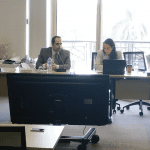
ABA/CRCICA Seminar: “How to Break into Arbitration”
On 23 March 2019, CRCICA organized a Seminar on “How to Break into Arbitration”. The tutors were Mr. Amr Omran, Associate at Freshfields Bruckhaus Deringer and a Member of the Firm’s International Arbitration Group in Dubai, and Ms. Salma El Baz, Senior Associate at Rizkana & Partners. The Seminar discussed possible means for young generations to access the domestic and international arbitration field. It also shed light on the skills of junior associates in arbitration practices and how to raise their profile through networking, young arbitration groups and other opportunities. The event was concluded by a questions and answers session and was attended by young legal practitioners and contract engineers.

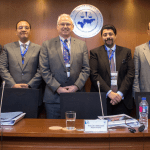
Conference on Arbitrating Banking and Finance Related Disputes: A New Paradigm?
On the occasion of the Twentieth Anniversary of the CIArb Egypt Branch, the Branch organized an international Conference titled: “Arbitrating Banking and Finance Disputes: A New Paradigm?”. The Conference was hosted and co-organized by CRCICA on 9 &10 February 2019.

The Conference shed light on the specificities of banking and financial disputes and tackled the actual and potential use of international arbitration to resolve them. Designed in a highly interactive panels format, the agenda triggered live discussions among all stakeholders; bank representatives, financial institutions representatives, governmental officials, borrowers, legal counsels, project developers, international institutions and academics. Interesting topics were approached, including developments in banking and finance transactions and disputes, the rise of arbitration in banking disputes, the challenges facing banking institutions when using arbitration and the means to increase the efficiency and attractiveness of arbitration in this sector. The Conference also addressed sector specific finance disputes like Islamic finance and PPPs.
The Director General of the Chartered Institute of Arbitrators, Mr. Anthony Abrahams, joined the inaugural session while the keynote speech was presented by Mr. Mohamed Abou Moussa, Sub the Sub- Governor of the Central Bank of Egypt. The event witnessed diversity of attendees exceeding 100 participants and speakers from Bahrain, Egypt, France, Iraq, Jordan, Lebanon, Nigeria, UK, and Sultanate Oman.
